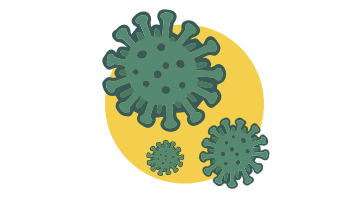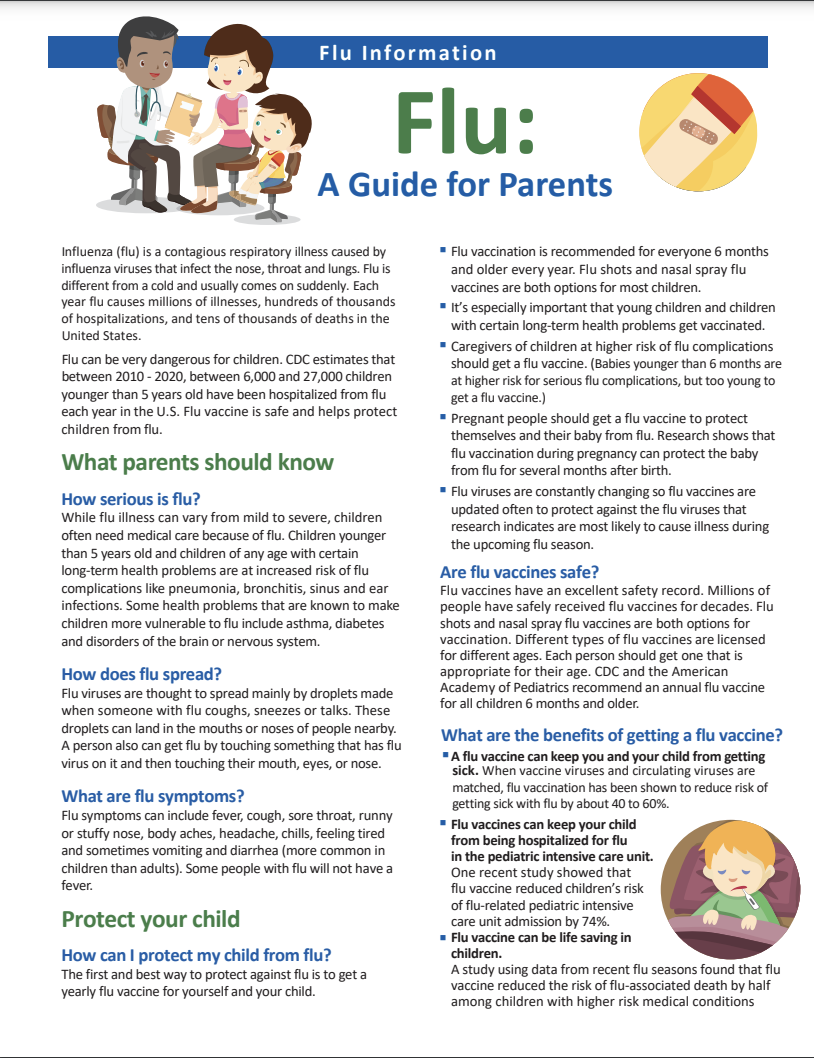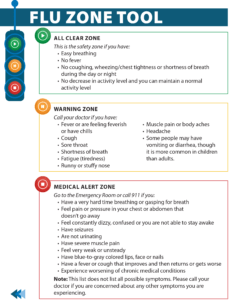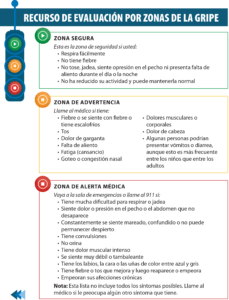Flu Zone
FLU VACCINE: GET THE FACTS
YOUR BEST PROTECTION AGAINST FLU
Millions of people get flu every year, hundreds of thousands of people are hospitalized and thousands or tens of thousands of people die. The Centers for Disease Control and Prevention (CDC), public health professionals, and our practice recommend that everyone 6 months of age and older should get a flu vaccine every year. Flu vaccination can reduce flu illnesses, doctors’ visits, and missed work and school due to flu, as well as prevent serious flu complications that can result in hospitalization and even death.1,2 A flu vaccine is the best way to help prevent flu and its potentially serious complications. Remember that flu vaccine not only protects you, but it also can help protect those around you.
FLU VACCINE REDUCES YOUR RISK OF FLU

CDC estimates that flu has resulted in 9 million – 41 million illnesses, 140,000 – 710,000 hospitalizations and 12,000 – 52,000 deaths annually between 2010 and 2023

Recent studies show that flu vaccination reduces the risk of flu illness by between 40% and 60% among the overall population during seasons when most circulating flu viruses are well-matched to the flu vaccine.

Since 2004, when pediatric flu deaths became nationally notifiable, the number of pediatric flu deaths reported to CDC each year prior to the COVID-19 pandemic ranged from 37 (2011-2012 season) to 199 deaths (2019-2020 season.)
While some people who get a flu vaccine still get sick, vaccination can make their illness less severe. Two recent studies among hospitalized flu patients showed that flu vaccination reduced intensive care unit admissions and duration of hospitalization. Remember that a flu vaccine not only protects you, but it also can help protect those around you, including people who are at higher risk for serious flu illness, like babies, young children, older adults, pregnant people, and people with certain chronic health conditions.
FLU VACCINATION ESPECIALLY IMPORTANT FOR SOME
Flu vaccination is especially important for people who are at higher risk of developing serious complications from flu, including children younger than 5, pregnant people, adults 65 and older, and people with certain chronic health conditions, such as diabetes, heart disease, and asthma.
PROVEN SAFETY RECORD
For more than 50 years, hundreds of millions of Americans have safely received seasonal flu vaccines and there has been extensive research supporting its safety. Side effects from flu vaccination are generally mild, especially when compared to symptoms of flu. Talk to someone in our office about getting a flu vaccine this fall. Our staff is ready to answer your questions.
GUIDE FOR PARENTS
Influenza (flu) is a contagious respiratory illness caused by influenza viruses that infect the nose, throat and lungs. Flu is different from a cold and usually comes on suddenly. Each year flu causes millions of illnesses, hundreds of thousands of hospitalizations, and tens of thousands of deaths in the United States. Flu can be very dangerous for children. CDC estimates that between 2010 – 2020, between 6,000 and 27,000 children younger than 5 years old have been hospitalized from flu each year in the U.S. Flu vaccine is safe and helps protect children from flu.
Read more:
GUARD YOUR CHILDREN AGAINST FLU: Essential Tips for Parents
Safeguarding your children from the flu extends beyond vaccinations. Educate them on the importance of thorough handwashing, a crucial line of defense against germs. Emphasize the benefits of social distancing, especially during flu season, to minimize exposure. It’s also vital to instill the responsibility of staying home when feeling unwell, to prevent spreading illness to others. Moreover, understanding the right time to return to school or work after recovery is key in ensuring complete healing and reducing the risk of flu transmission. Together, these practices contribute to a healthier environment for your child and the community.





